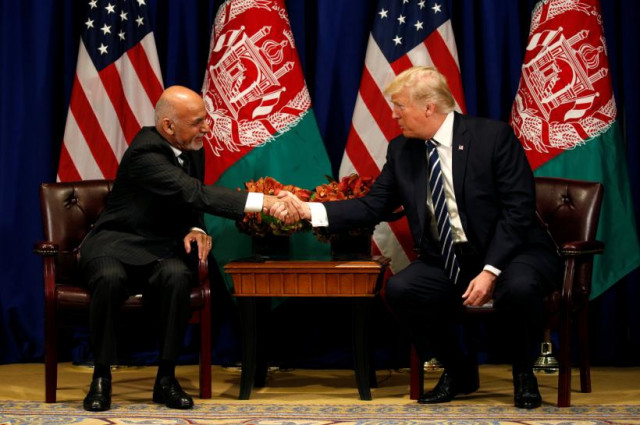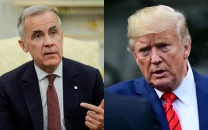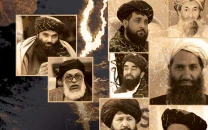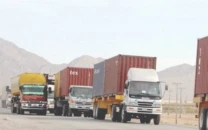Trump, Ghani agree US can help develop Afghanistan's rare earth minerals
The US Geological Survey has estimated the potential value of Afghanistan’s minerals

US President Donald Trump and Afghan President Ashraf Ghani on Thursday backed having companies from the United States develop Afghanistan’s reserves of rare earth minerals, despite formidable obstacles to industrial mining in the country.
The comments, at a meeting in New York, were the latest in a series in which both US officials and the Afghan government have emphasized the potential strategic value of Afghanistan’s vast and largely untapped mineral reserves.
Both leaders also reiterated their commitment to Trump’s new South Asia strategy to defeat terrorism.
Pence walks back Trump's tough talk on Pakistan
But after 16 years in Afghanistan, the US is looking for ways to offset the billions of dollars spent every year in propping up the government in Kabul and mining is increasingly being seen as a way to do that.
“They agreed that such initiatives would help American companies develop materials critical to national security while growing Afghanistan’s economy and creating new jobs in both countries, therefore defraying some of the costs of United States assistance as Afghans become more self-reliant,” the White House said.
The US Geological Survey has estimated the potential value of Afghanistan’s minerals, including gold and gemstones as well as substances like lithium and rare earths vital in modern electronics, at as much as $1 trillion.
But a lack of even basic transport and industrial infrastructure as well as a growing insurgency that has taken almost half the country out of government control has meant minerals have been impossible to exploit economically.
Prices of some rare earths have shot up recently as demand for electric vehicle technology has grown, fuelling some talk that their value could compensate for the higher risks in getting them out of the ground.
In addition, the rare earths sector is overwhelmingly dominated by China, causing some concern in Washington that Beijing has a stranglehold on raw materials vital to modern defense technology and prompting an interest in finding alternative sources.
However, it remains unclear how a feasible development plan in Afghanistan could be developed in the future.
Extracting the minerals remains a difficult and costly process and the fact that large parts of the economic reserves of rare earths in Afghanistan are located in Helmand province, now mostly under Taliban control, mean that miners are likely to look at easier opportunities elsewhere.
President Trump changes tack in meeting with Abbasi
Mike Harrowell, an analyst at research firm Harwind, based in Sydney, said attempting rare earths extraction in Afghanistan at the moment “makes no sense on almost any level” unless it were treated as a government-funded, nation-building project.
“It’s not a simple business, and the technology is quite tightly held. It costs a lot,” he said.
“There are so many well-studied projects in North America that were assessed during the rare earths boom after 2010 that still require funding. You would do any of those projects before you’d do one in Afghanistan”.


















COMMENTS
Comments are moderated and generally will be posted if they are on-topic and not abusive.
For more information, please see our Comments FAQ